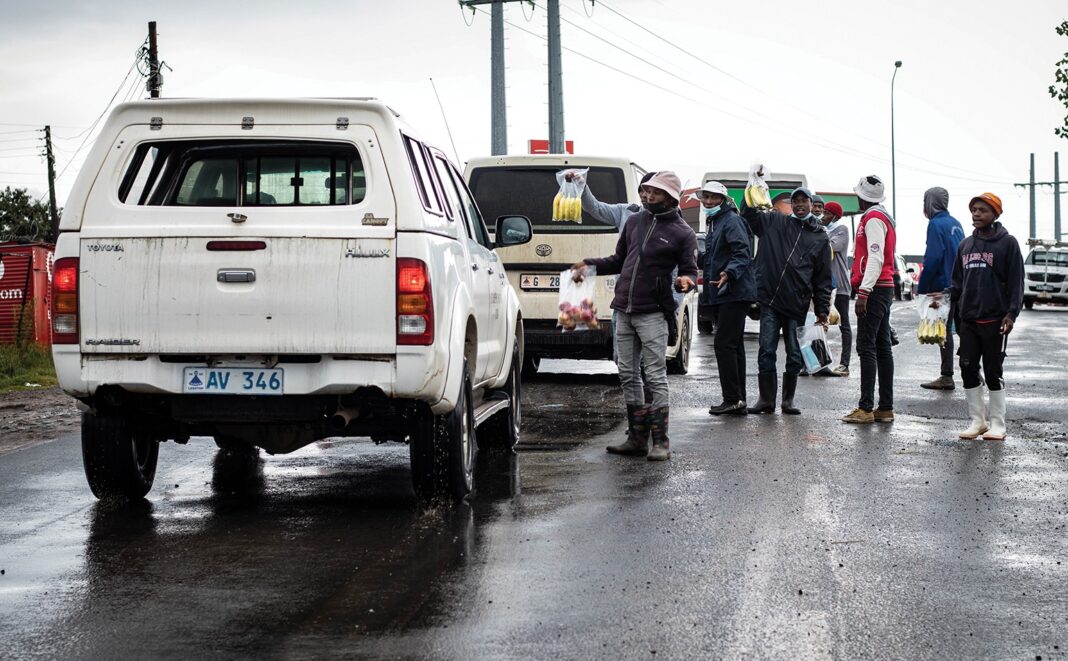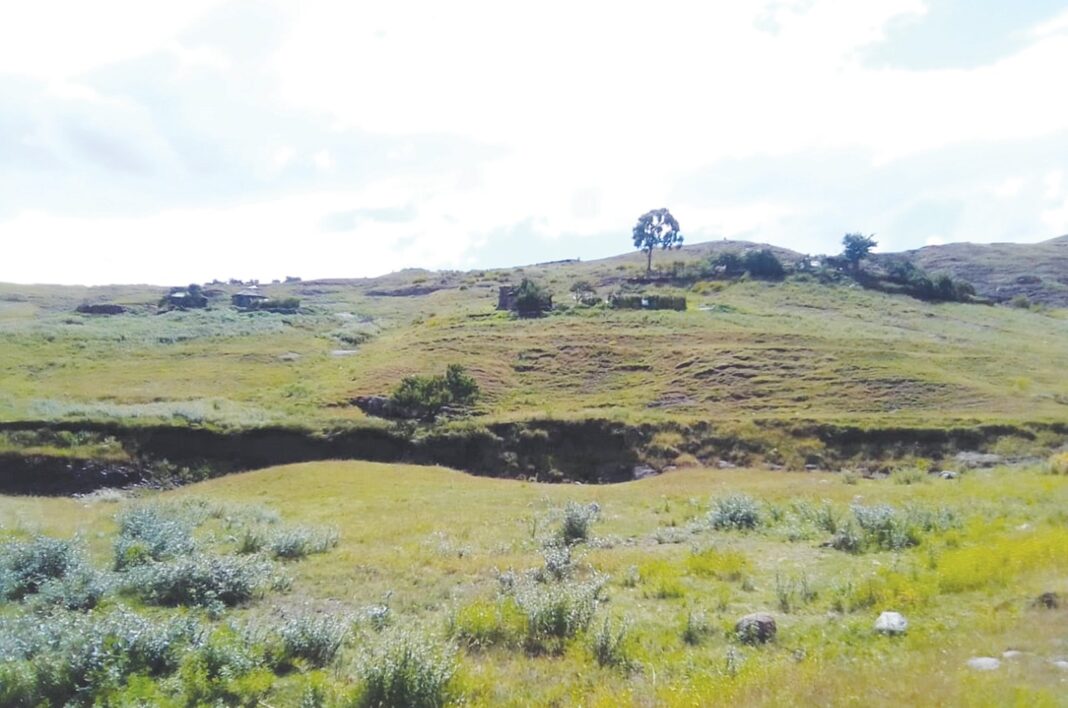By Seleoe Nonyane
The Lesotho Mounted Police Service (LMPS) is claiming to have no full knowledge of the scope of the country’s traffic laws.
This emerged when the LMPS public relations officer Senior Superintendent Mpiti Mopeli yesterday said the police were not in full knowledge of the Traffic Law, which provides a list of road traffic-related offences.
Surprisingly, the police have a traffic unit which is entrusted with ensuring motorists and pedestrians abide by the traffic laws. The unit also enforces the traffic legislation, charges and fines traffic law offenders.
The police’s admission came in response to questions regarding the proliferation of vendors who ply their trade – selling an assortment of goods – in the middle of major roads in and outside the city of Maseru.
The vendors’ trading activities are going on unabated, sometimes irritating motorists. And the traffic police are doing nothing about it.
The Road Traffic Act No.8 of 1981 states that: “Except on or in premises licensed by competent authority, no person shall sell, display, offer for sale or deliver pursuant to a sale, any goods on any public road, or any traffic sign denoting a blind corner or rise thereon, on any public road inside an urban area, except in such circumstances and subject to such conditions as may by regulations provide or, in the absence of such regulations as he may determine, either generally or specifically.”
The law provides that any person who contravenes this law is guilty of an offence.
Bu the vendors are seen selling their items such as fruits, sweets, roasted meat and beverages in the middle of the roads.
They can be spotted at the Airport Road, Main South I in Masianokeng and the Main North I near Mohalalitoe in Maseru, to name a few.
A vendor who sells grapes in Masianokeng on the Main South I Road, Tasa Lebitso, said he has been vending on the road for the past six years to support his family. This is despite knowing that it is a traffic offence to trade in the middle of the public road.
He said he is forced to trade at the place to fend for his family although that generates little income.
The money he gets from vending, he argued, is only enough to cater for family’s basic needs.
“When I first began selling on this road a police official once approached me and my colleagues and informed us that it is illegal to sell on the middle of the road. We did not consider the warning as a serious matter. We continued to trade there as the officer never came back.
Lebitso was aware of the road accident risks him and other vendors faced as motor accidents often occur at the place.
“Many of my colleagues have been hit by vehicles leaving them with minor and serious injuries. Some have ceased selling their items there,” he said.
One of Lebitso’s colleagues who also sells fruits at Masianokeng regarded his trade as so important as it “has changed and shaped my life for the better.”
His journey to vend started in 2013 when he sold peaches and grapes while he was in Form A.
But he was ignorant that trading in the middle of the road is an offence that might likely haul him into the courtroom.
However, he is not yet meditating on leaving his trade as it is a source of income for him and his family.
“That will not be easy as I make some profits from the business. I started selling on this road during the weekends because at the time I was struggling to even attend classes as I was still in school. Therefore, my coming here made a huge impact in my life as I was able to complete my studies with the money I raised when selling fruits on this road,” he said.
He strongly cautioned small traders to dread carefully as it is a dangerous spot to sell items.
He was adamant that the government should provide them with means to live if ever they are removed from the area.
Another vendor in Maseru, Thabang Moloi, who trades along the road near the Central Bank and the Central Park was also not aware that such practice was breaching the traffic law.
He said that he started selling on the road because he had realized that a lot of vendors were doing it. However, the meagre profit sustains his livelihood, allowing him to put bread on the table.
Moloi said he was once hit by an oncoming vehicle while on duty and sustained a minor injury.
He has called on government to create much needed jobs for them.
But the practice has not gone without any harsh criticism from some irate motorists.
‘Mabokamoso Posholi, who usually drives along the Main South I Road said sometimes “it is so frustrating to drive along that road as the traders slow the traffic flow.”
She argues that in other times she is forced to arrive late at work as some drivers abruptly stop in the road to buy goods from the vendors.
But she shared her sympathy with the small traders as “they fend for their families in the midst of high unemployment.”
The chief information officer of the road safety department, Ntumeleng Ntṧekhe, categorically warned it is a transgression of the law for vendors to trade along the road.
She urged that road safety was key for both motorists and pedestrians – including the vendors- in order to avoid any road accidents.
“As Road Safety, our only duty is to create awareness about the dangers of selling on the road and how unsafe it is for anyone to operate on the road.
“But Road Safety is not authorized to remove the vendors from the road. We are not an enforcement of the law but just advisers”, she added, saying her department could only work hand in hand with the police as the law enforcement agency.









